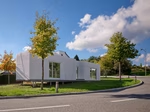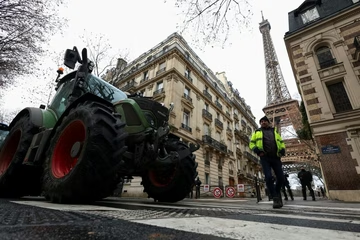
Hardened criminals, mainly from the countries of the region, often hide in Bosnia and Herzegovina, and there are multiple reasons for this. Among them is the fact that they believe that it will be more difficult to locate them due to insufficient cooperation between police agencies in the country.
Another reason is the dual citizenship that some of them have and make use of in such cases.
Many wanted persons have been hiding in Bosnia and Herzegovina, including members of notorious mafia clans, and the most recent example was recorded a few days ago, when Mladen Samardzija, one of the most wanted European fugitives, who has Bosnian and Slovenian citizenship, was arrested in the country, Nezavisne novine reports.
According to an Europol statement, it is believed that he is the leader of an international organized criminal group that was involved in cocaine and heroin trade in the European Union, Bosnia and Herzegovina, Montenegro and Serbia.
Slovenian authorities believe the suspect “recruited accomplices and provided them with vehicles with purpose-built hidden compartments to transport and sell cocaine and heroin”, the statement said. The group would allegedly launder the earnings by buying real estate and luxury vehicles. During the operational activities, the law enforcement authorities seized drugs, weapons and ammunition, telephones, vehicles, electronic equipment and more than 120,000 euros in cash, Europol said.
Armin Krzalic, a professor at the Faculty of Criminology, Criminology and Security Studies of the University of Sarajevo, explained that those countries that are ravaged by corruption and have an inefficient judiciary are a “magnet” for people who engage in illegal activities.
"We should not forget the aspect of BiH regarding the issue of dual citizenships, which enable certain persons who are accused and are to be sentenced, to go freely to another country", said Krzalic in a statement for "Nezavisne novine".
Security expert Radislav Jovicic noted that this is an issue that must be assessed and that this practice especially refers to the area of Banjaluka or East Sarajevo, where members of criminal groups are often located.
"Whether it is due to dual citizenship, which criminals use to hide from authorities, or whether it is due to certain weaker exchanges of information at the international, regional or internal level, that is a question for the security services in Bosnia and Herzegovina," Jovicic, the former Minister of Internal Affairs of BiH’s Republika Srpska (RS) entity, told Nezavisne novine.
Journalists who cover such cases said that cooperation between security agencies in Bosnia and Herzegovina must be stronger and faster, and that communication between police agencies must be improved.
Borka Ceric, a journalist working for "Dnevni Avaz", said that criminals abuse the dual citizenship because they know that BiH “does not extradite its citizens”. She said that there are interstate agreements on extradition, but that they must be redefined in order to prevent abuse.
"Another issue is the connections between criminal groups in the region and such groups in our country. It is known from earlier cases, as well as the most recent one, when the Serbian citizens Dusko Jovanovic Giba and Darko Dulovic were arrested, that criminals very easily obtain forged BiH documents”, Ceric said.
Kakvo je tvoje mišljenje o ovome?
Učestvuj u diskusiji ili pročitaj komentare





 Srbija
Srbija
 Hrvatska
Hrvatska
 Slovenija
Slovenija



























































